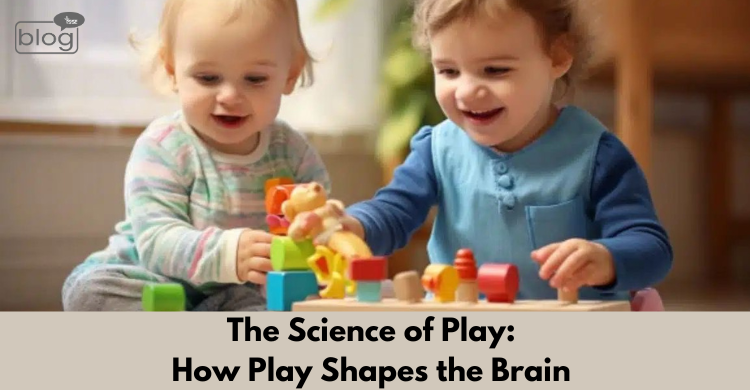There’s a word: play. Most people associate this term with childhood, a period in life filled with unhindered joy and explorations. But more than all these, play constitutes a fundamental activity in man’s very nature—it is an act that has significant implications for the cognitive, emotional, and social development of individuals.
Neuroscience of play
Recent neuroscientific studies have undeniably explained play’s great importance for the developing brain. Here are some of the highlights:
Cognitive Growth:
Problem-solving and creativity: Most games typically involve challenges, puzzles, and imaginary scenarios. Overcoming these obstacles by trying different solutions aids the child’s problem-solving ability and nurtures creativity.
Cognitive flexibility: Play encourages children to think unconventionally and adapt to various rules while being open to new points of view. Hence, this inspires cognitive flexibility, which is a vital trait required in learning and dealing with a complicated environment in real life.
Memory and learning: The activities are narrations, games, role-playing, etc., which are amusing for children and, hence, enhance their memory in terms of concentration. Such playful activities help children learn about the world, as well as develop language skills and grasp social concepts.
Social and emotional development:
Emotional self-regulation: Children reflect in their play, wherein they can explore their feelings and emote their emotions. In this aspect, they learn how to recognize, comprehend, and handle their emotions—be it anger, frustration, or sadness.
Social skills: Playing is, per se, social; children learn to cooperate, negotiate, share, and resolve conflicts in interaction with their peers. They cultivate empathy, appreciation, and understanding for one another through collective experience and imaginative play.
Esteem and confidence: Experience through play adds value to a candidate’s competence and mastery. Children develop their self-confidence with a positive self-image as they attempt and succeed in doing something: overcoming challenges and reaching goals set for or within play.
Types of Play and Their Benefits:
Physical Play:
Benefits: Develop physical growth and motor skills: coordination and gross motor skills enhancement.
Examples: running, hopping, climbing, dancing, team sports.
Social Play:
Advantages: Develop social skills in relation to communication, cooperation, and empathy with other children or adults.
Examples: pretend play, role-play, group games, social interactions.
Cognitive Play:
Benefits: stimulates cognition, encouraging problem-solving, creativity, and critical thinking.
Examples: puzzles, building blocks, board games, artistic activities, and those involving music.
Importance of play in life
Thus, the importance of play goes beyond childhood. Indeed, play is even particularly important for well-being and cognitive functioning throughout life in adulthood.
Stress Reduction: Just being playful—hobby, gaming, or leaving it all behind in nature—helps shed stress, improve one’s mood, and provide better happiness.
Cognitive stimulation: Playful activities such as learning a new language, playing a new instrument, or doing artistic pursuits will maintain cognitive health, allow memory improvement, and prevent old-age disabilities relevant to cognition.
Social Connection: Play with friends, family, and loved ones, as these kinds of activities establish a measure of connectedness to society, cement relationships, and create belonging.
Supporting Play for Children and Adults
Create an Environment for Playfulness: Such an environment sufficed to enable children to play safely in stimulation, toys, games, exploration possibilities, and other play modes.
Encourage Free Play: Provide completely unstructured play and develop interests for themselves. Participate in the Fun: Join on-the-beam contests between children and share playtime with your friends and family in various activities with them.
Play in the Course of Daily Life: Build playful bits into your daily routine by playing break games, hobbies, or spending time in nature.
Play isn’t just to make life unreasonably ludicrous; it is deep in need and bears much high-end promise for personal development in physical, cognitive, and emotional areas. The invention of life around play will then develop creativity, socialization, and lifelong learning.
To read more blogs like this, click here.
Writer
Mahfuza Amir Ela
Intern, Content Writing Department
YSSE

